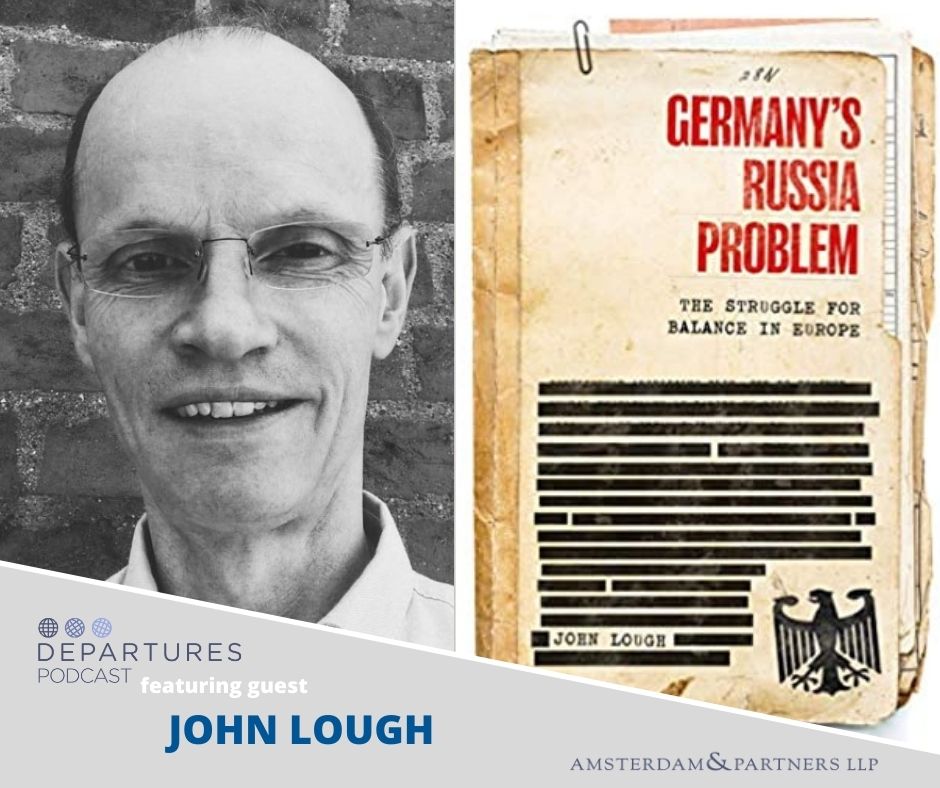Departures Podcast with John Lough, author of ‘Germany’s Russia Problem: The Struggle for Balance in Europe’

In power since 2005, Angela Merkel’s CDU coalition has managed to govern Germany with an admirable level of success, but at the same time during this period, Vladimir Putin’s Russia has invaded multiple countries, interfered in elections both near and far away, and run amok with jailings and assassinations of dissidents.
How is it possible that still today, many German public officials fail to see that they have a problem in managing relations with Moscow?
Author John Lough, a friend of the podcast and an Associate Fellow at Chatham House’s Russia and Eurasia Programme, tackles this thorny issue in his latest book, “Germany’s Russia Problem: The Struggle for Balance in Europe.”
Lough explores the uniquely close historical ties between Russia and Germany, including some practices and perceptions dating back to the GDR, as well as Vladimir Putin’s training in East Berlin to communicate with and influence prominent German political leaders. Lough argues that Moscow’s attempts to rebalance Europe by weakening the European Union and NATO are a direct threat to Germany’s national interests, but until recently, there has been little policy developed to respond and contain Moscow.
“Germany transfers its sense of guilt about Nazi crimes inflicted on the peoples of the USSR exclusively to modern Russia. Its academic expertise on Belarus and Ukraine is strikingly underdeveloped compared to that on Russia,” Lough argues.











